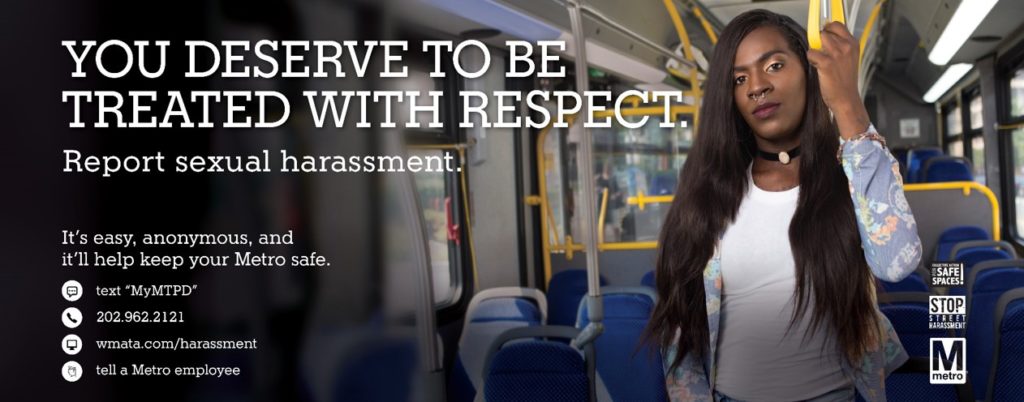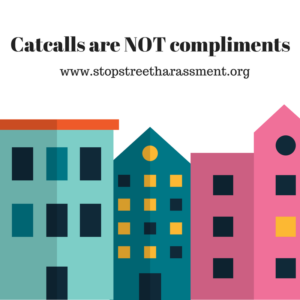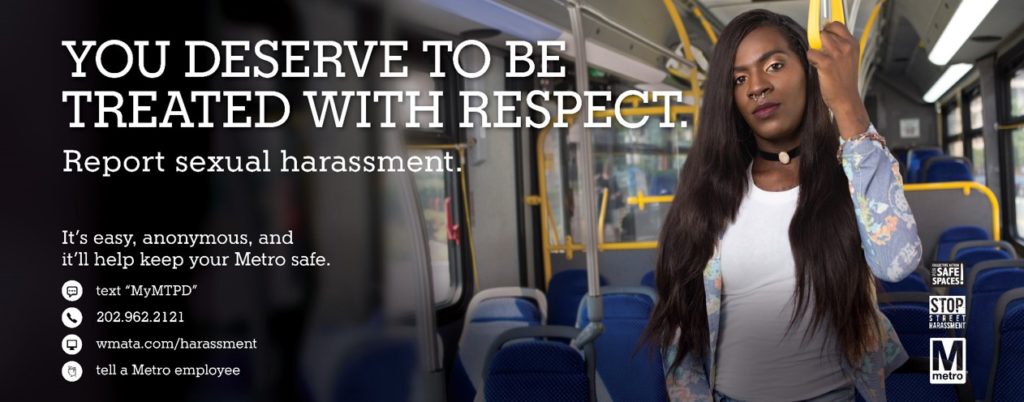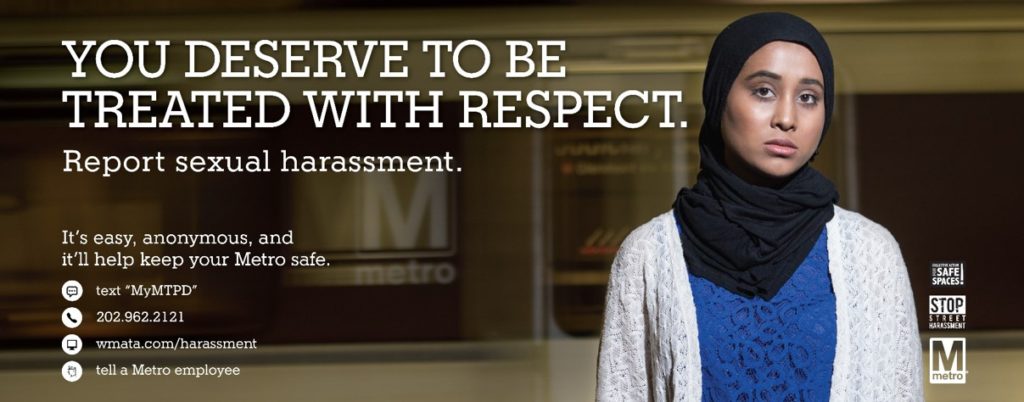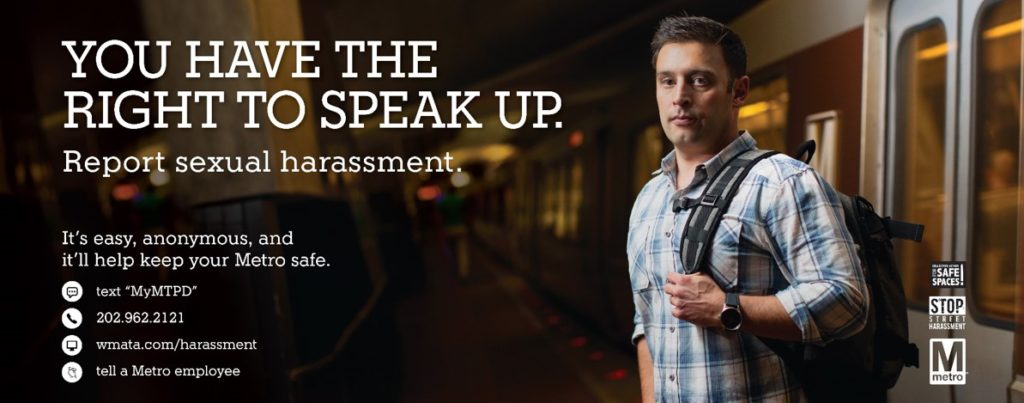
It’s been nearly six years since we started working with Collective Action for Safe Spaces (CASS) and the Washington Metropolitan Area Transit Authority on efforts to address and prevent sexual harassment on the transit system. Today, Chantal from CASS and I attended a 2018 planning meeting at WMATA HQ and we are looking forward to various forthcoming projects:
1) Audio announcements letting people know how to report harassment they experience or witness will start being played on Metro trains this month and on buses in the spring. They asked if one of us would record them and I ended up being the one who did. So if you’re in the area, listen for my voice on Metro!!

2) During International Anti-Street Harassment Week (April 8-14), we will partner together for our annual outreach day at various Metro stations. We’ll have new flyers, bracelets, and perhaps other giveaways, so stay tuned. We’ll also be looking for volunteers to help distribute information (date TBD but likely during evening rush hour on April 10 or 11).
3) Currently the third wave of print PSAs are up on the system. They are gorgeous! But if they’re up too long, people get used to them and don’t notice them anymore. They went up in Nov 2016, so it’s about time for new ads. We will work on a new set of ads over the summer.
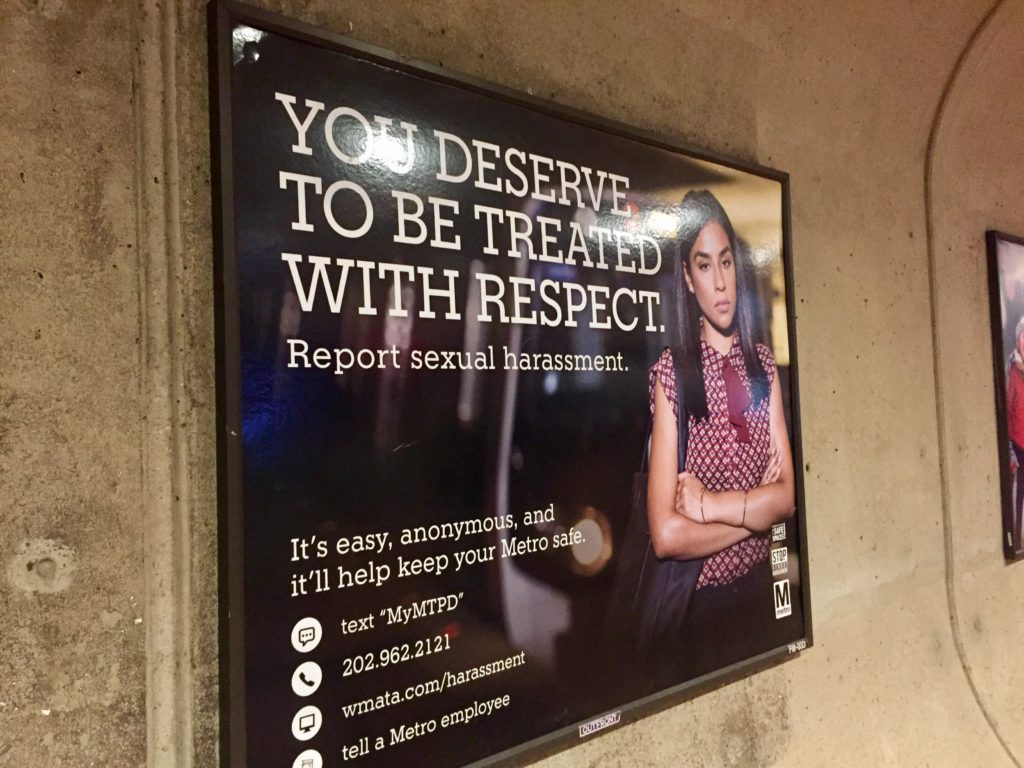
4) We began a discussion about doing a follow-up survey of some kind to the 2016 ridership survey on sexual harassment to see how the latest print ads have been received and to see if people’s experiences with harassment have changed at all.
Those were the main updates. We are grateful that WMATA continues to dedicate time and resources to making the transit system safer.

